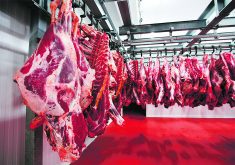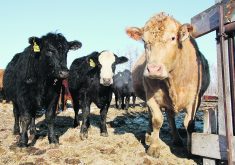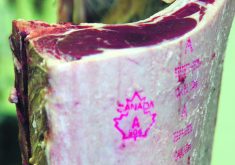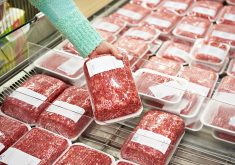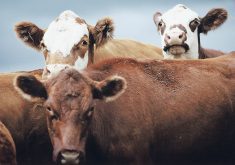Less than a month following South Korea suspending beef imports from Canada due to an atypical case of BSE reported in an Alberta cow, that country has lifted those restrictions.
Unlike classic BSE, which is primarily linked to contaminated feed, the atypical variant occurs naturally, though rarely, in older cattle.
“Great news for our cattle sector, who provide the world with safe, high-quality beef,” federal agriculture minister Marie-Claude Bateau tweeted when announcing the lifting of the import restrictions Jan. 19.
Atypical BSE appears at a rate of approximately one in one million older cattle, according to the Canadian Food Inspection Agency, even in countries with no reported cases of classical BSE.
Read Also

Huge Black Sea flax crop to provide stiff competition
Russia and Kazakhstan harvested huge flax crops and will be providing stiff competition in China and the EU.
Industry officials have been stressing the safety of the Canadian beef industry, highlighting the quick reporting of the Canadian case found on an Alberta farm on Dec. 17, 2021, through the national BSE surveillance program.
South Korea, which accounts for a little more than one percent of the export market, was the first of three countries to publicly announce restrictions on Canadian beef products.
China and Philippines followed and, like South Korea, requested further information on the atypical case of BSE.
CFIA officials provided China with that information on Jan. 10 and the Philippines a few days later.
China represents the largest export market to place suspensions on Canadian beef products. It makes up 6.6 percent of the more than $3 billion national export market.
Philippines makes up less than one percent of that market.
Industry officials have also stressed the atypical case has not affected Canada’s negligible risk status with the World Organization for Animal Health.






